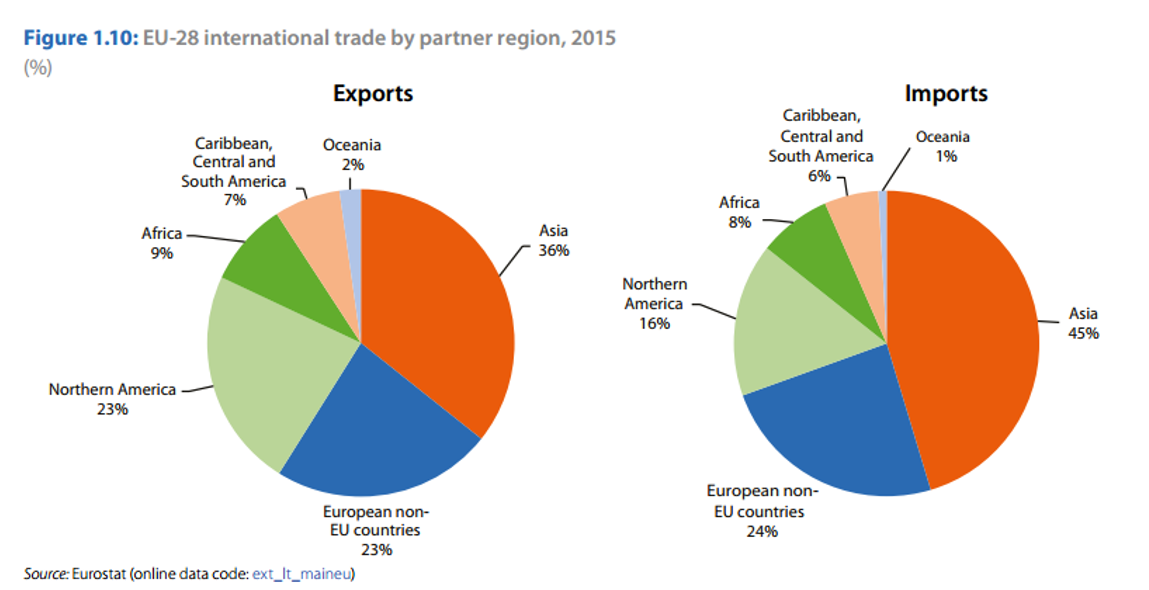Introduction
The dynamic economic landscape of global trade has witnessed a vibrant partnership between South Africa and Germany, two nations entwined in a mutually beneficial exchange of goods and services. This article delves into the intricate details of South Africa’s trade relationship with Germany, shedding light on the historical roots, key commodities involved, and the impact this exchange has on both economies. By delving into the depths of this relationship, we unravel its significance for both countries and uncover the potential it holds for future growth and collaboration.

Image: www.brookings.edu
Historical Context
The origins of South Africa’s trade relationship with Germany can be traced back to the 19th century, during the era of European colonialism. Following the discovery of gold and diamonds in South Africa, German companies actively invested in the country’s mining sector. This early engagement laid the foundation for a long-standing economic connection between the two nations.
Key Commodities Traded
Automotive: Auto parts, machinery, and vehicles form a pivotal segment of South Africa’s exports to Germany. The German automotive industry, renowned for its innovation and technological advancements, heavily relies on components manufactured in South Africa. This includes critical components such as catalytic converters, seat belts, and radiators.
Minerals: South Africa possesses abundant mineral resources, with Germany being a primary destination for its exports. Coal, iron ore, and manganese are among the most significant minerals traded between the two countries. Germany utilizes these resources for its manufacturing sector and infrastructure projects.
Machinery and Equipment: Germany holds a strong position as a global leader in the production of machinery and equipment. South Africa benefits from importing these advanced technologies for its various industries, including manufacturing, construction, and agriculture.
Agricultural Products: South Africa’s diverse agricultural sector contributes to a range of exports to Germany, including fruits, vegetables, wine, and flowers. German consumers appreciate the high quality and freshness of South African produce, further strengthening the bilateral trade relationship.
Chemicals: The chemical industry plays an important role in both economies, with Germany exporting chemicals to South Africa and importing raw materials such as minerals and synthetic fuels.
Benefits and Importance
Economic Growth: The trade relationship between South Africa and Germany contributes to the economic growth of both countries. Exports boost GDP, create jobs, and enhance industrial competitiveness.
Technology Transfer: Through trade, South Africa gains access to advanced German technology and expertise. This transfer of knowledge and skills supports the development of local industries and strengthens the country’s technological capabilities.
Market Access: South Africa benefits from access to the large and affluent German market for its exports. This provides a valuable platform for South African businesses to expand their reach and increase revenue streams.
Job Creation: The trade relationship between South Africa and Germany generates employment opportunities in both countries. Industries involved in the production, logistics, and distribution of goods benefit from the increased economic activity.
Diversification: The diversity of goods traded between South Africa and Germany reduces dependency on specific commodities and strengthens the resilience of both economies against external shocks.

Image: joziwire.co.za
What Does South Africa Trade With Germany
Conclusion
The trade relationship between South Africa and Germany is a testament to the interconnectedness of the global economy. By fostering a mutually beneficial exchange of goods and services, the two countries have strengthened their economic ties and paved the way for future collaboration. As the world navigates an evolving economic landscape, the continued partnership between South Africa and Germany holds immense potential for innovation, growth, and prosperity for both nations.






